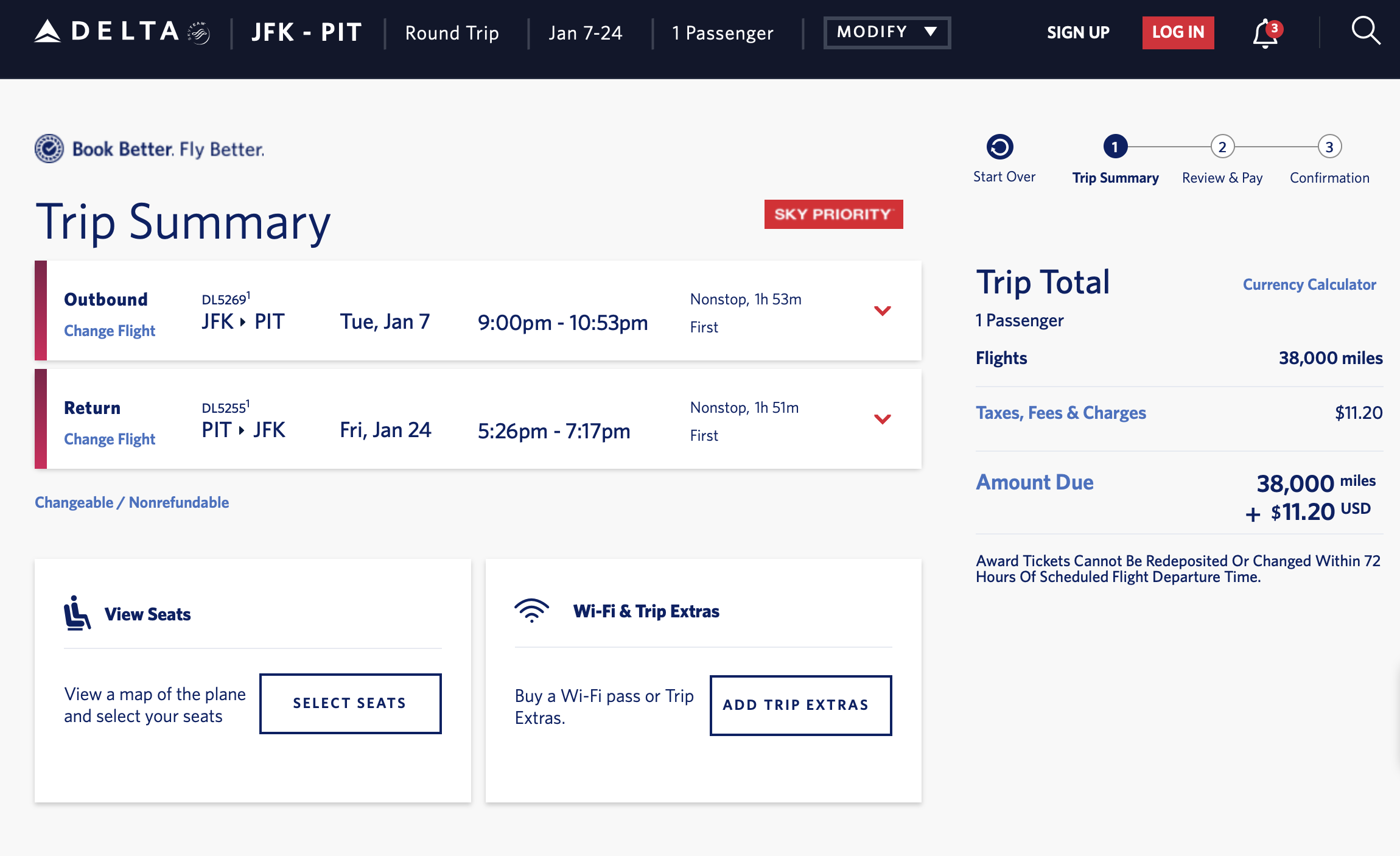While I understand the economics of airline pricing to the extent that distance and price rarely correlate, the idea of charging more for A alone than A + B still requires the suspension of logic.
Today, I’m not talking about hidden city ticketing, which at least somewhat makes sense. Put simply, it makes sense that an airline would charge a premium for a nonstop London to Los Angeles flight versus a passenger who started in Oslo and was willing to connect in London to fly to Los Angeles. It’s still a bit off-putting that one passenger on a flight might pay half the price of another because she added an extra segment, but we can at least appreciate airlines charging a premium for nonstop flights.
However, the idea of penalizing a one-way booking when using points just makes no sense to me. That’s our topic of discussion for today.
Airlines used to price round-trip travel cheaper than one-way travel. Saturday night stay requirements and other onerous requirements incentivized tricks like nesting tickets. Mileage charts used to be round-trip as well.
But over the last decade, especially with the proliferation of budget carriers, carriers have largely gone to one-way pricing for revenue and awards tickets in the USA.
The one-way penalty, however, remains on some routes and also manifests itself in award travel pricing, even in an era of per-segment or one-way pricing on almost all mileage tickets.
Round-Trip Pricing = Mileage Savings
My client in Pittsburgh needed to get from New York JFK to Pittsburgh. The gentleman always travels in first class, leaving options on American or Delta.
The American Airlines flight time did not work, leaving Delta.
For the one-way journey from JFK to PIT, Delta wanted 48,000 miles:

That’s absurd, but Delta commands a premium for that market and prices accordingly. Revenue tickets were over $500 and the client is flush with points.
But here’s the interesting thing. When I added a return date—any date worked—the price dropped from 48,000 one-way in first class to 38,000 round-trip in first class. Same phenomenon if we had booked economy class.

How is that for logic?
Let’s see, 48K for a one-way or 38K for a round-trip…that’s a difficult one.
CONCLUSION
Whether you take the return trip or not doesn’t matter. If you’re going to blow miles on a one-way journey, be sure to check round-trip pricing. On Delta, at least, you may find yourself saving a sizable chunk of miles.
image: Delta





it’s actually fun times considering “hidden city AWARD-ticketing” is apparently a thing worth gaming and challenging yourself to see what arbitrage you can dig up because of their oddball pricing model
You’re playing with fire if you try to hidden city ticket an award booking. This isn’t like a cash booking, where you can just conveniently forgot to provide your FF#. The airline has a very easy way of tracking you if you no-show for the last segment. And either re-pricing your award and/or shutting down your account in the process…
I do think skipping the return (my example above) is much less risky than throw-away ticketing, which is also a thing.
“the idea of charging more for A + B than A alone still requires the suspension of logic.”
Got that wrong
Yup. Thanks.
It’s not only with mileage awards. It’s the same issue with international tickets paid with money.
I usually see these anomalies when Delta has one of its “domestic flash sales.” They usually advertise the r/t economy comfort fares, but also discount the other fare classes. Apparently, it’s too difficult to make sure their other fare classes and one-way flights on the sale routes have consistent discounts.
This is typical on both cash as well as award tickets fro DC to NY. one way pricing is not half the roundtrip. I end up throwing a lot of segments away. No one has ever said boo.
What happens if you cancel the return after you fly the outbound? They can’t be like ‘fly the return or pay us 10k miles’ can they?
Is this domestic only or international too?